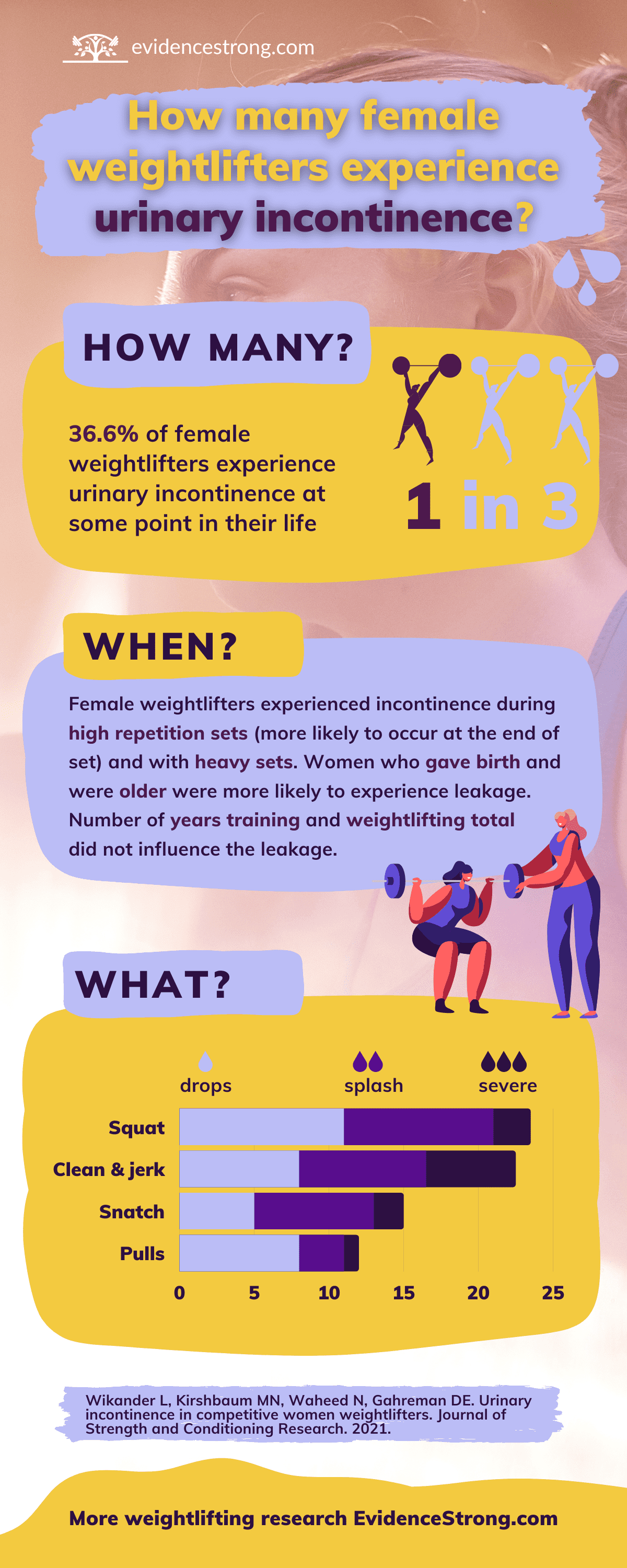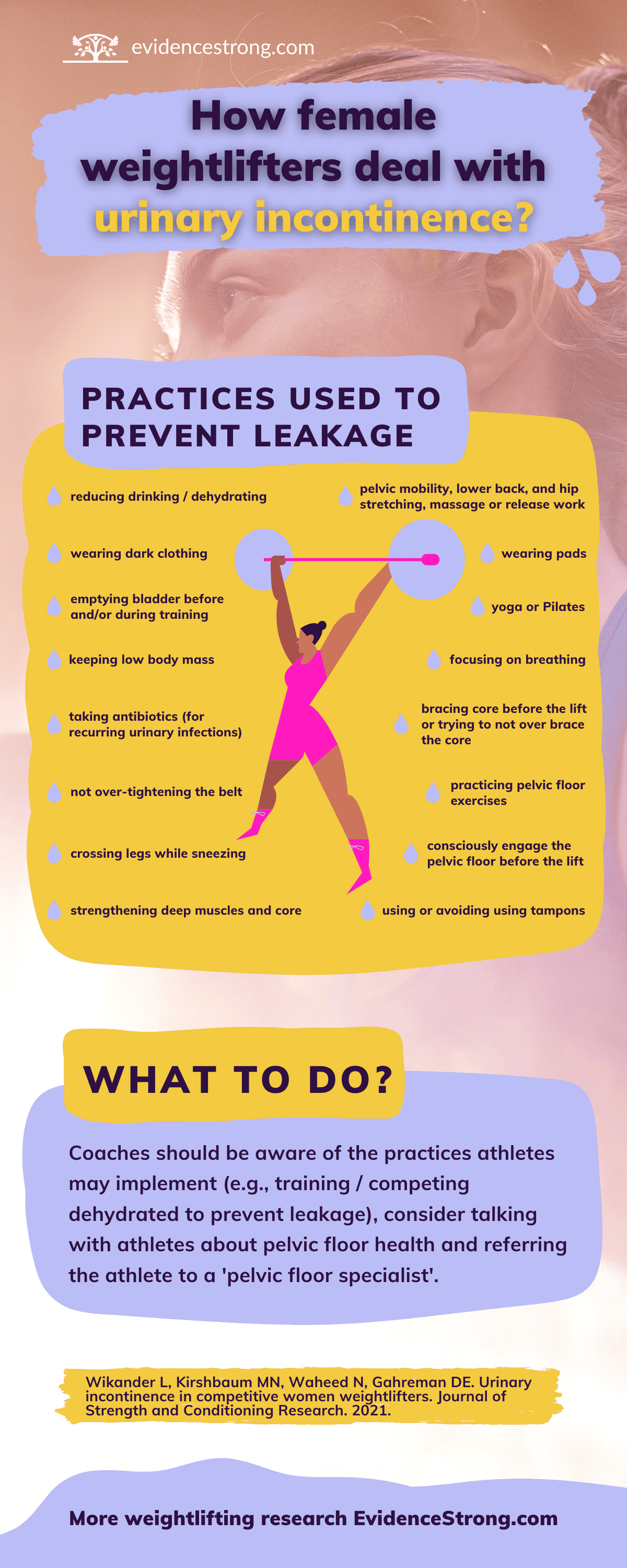Summary of an article investigating urinary incontinence (urine leakage due to the loss of bladder control) in female Olympic weightlifters.
Who
191 competitive female Olympic weightlifters aged on average 35.92±12 years with 6.31± 4.43 years of experience in strength training and 3.63±2.99 years of weightlifting experience (English-speaking countries: UK, USA, Australia, Canada, New Zealand).
Design
Online cross-sectional survey.
Outcome measures/tests
- Incontinence Severity Index
Main results
Female weightlifters and incontinence:
37% of female weightlifters had given birth (72 women):
- vaginal birth 76.4%
- cesarean birth 12.5%
- vaginal and cesarean births 11.1%
36.6% (70 women) reported experiencing urinary incontinence at some point in their life, and 31.9% (61 women) experienced incontinence within the last 3 months.
16.2% reported athletic incontinence (urinary incontinence that appears only during exercise):
- type 1 athletic incontinence (urinary incontinence that appears only during exercise and started after starting weightlifting) 8.4%
- type 2 athletic incontinence (urinary incontinence that appears only during exercise and started before starting weightlifting) 7.9%
57.1% experiences incontinence during high repetition sets (with half of them reporting that leakage was more likely to occur at the end of the set)
67.5% reported that incontinence only happened with heavy sets
3.7% reported leakage with the use of a belt
maximal effort during competition was less likely to provoke incontinence than maximal effort during training (16.8% versus 24.6%).
incontinence during the competition was less prevalent than during training (17.8% versus 25.7%).
24.3% of uncontinent weightlifters had a pelvic assessment, but 77.1% of incontinent weightlifters were confident (or very confident) in their ability to perform pelvic floor exercises.
factors related to the Incontinence Severity Index score:
- parity (going through labour / delivery / giving birth)
- age
factors that DO NOT influence incontinence:
- BMI
- years of participation in resistance or weightlifting training
- competition total
incontinence happens during:
- squat
- clean & jerk
- snatch
- pulls
practices used to prevent/minimise incontinence:
- taking antibiotics (for recurring urinary infections)
- yoga and Pilates
- emptying bladder before and/or during training
- consciously engage the pelvic floor before the lift
- focusing on breathing
- bracing core before the lift or trying to not over brace the core
- wearing 1 or 2 pads
- using or avoiding using tampons
- practicing pelvic floor exercises
- pelvic mobility, lower back and hip stretching, massage or release work
- strengthening deep muscles and core
- not over-tightening the belt
- wearing dark clothing
- reducing drinking
- keeping low body mass
- crossing legs while sneezing
Take home message
Original article
Wikander L, Kirshbaum MN, Waheed N, Gahreman DE. Urinary incontinence in competitive women weightlifters. Journal of Strength and Conditioning Research. 2021.
You might want to read next
Exercising and pelvic floor health in women
What happens during 10 years of Olympic weightlifting? (in women)
How oral contraceptives influence strength performance and health

